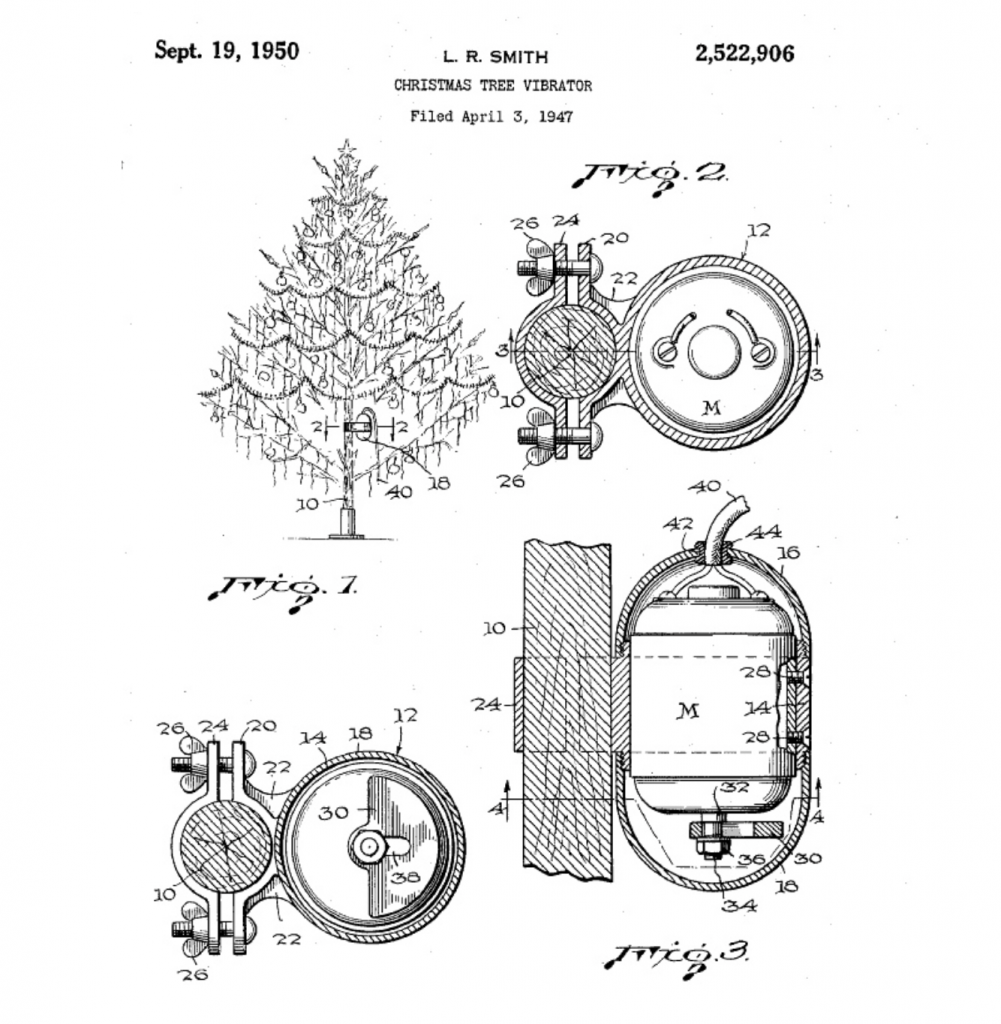
As the countdown to Christmas begins, intellectual property, identical to other industries, gears up for various holiday-related inventions, trademarks, and artistic works. While one cannot technically have a monopoly on Christmas, Hanukkah, or any other holiday, many have tried to obtain the broadest possible intellectual property rights relating to the same.
There are four federally registered trademarks for “Merry Christmas.” One is for cigar and cigarette boxes. Another was registered by a winery for fruit wine, grape wine, and natural sparkling wines. Additionally, one design trademark incorporates the greeting “Merry Christmas” for Christmas tree ornaments and decorations. The applicant for this design mark was required to disclaim the terms “Merry” and Christmas,” effectively rendering their mark protectable only to the extent that the terms are incorporated into that particular design. A trademark disclaimer is a statement the applicant of the trademark makes to the United States Patent and Trademark Office indicating that the applicant does not claim exclusive rights to those terms, because those terms are not registrable in the particular context. Trademark disclaimers often arise in the context of terms that are descriptive of the goods and services to which the mark relates.
Some more playful “Merry Christmas” trademarks include variations in spelling and placement of the phrase among other terms. For example, in 2017, one individual registered “Make American Merry Christmas Again” for clothing. Another classic saying is “Merry Christmas Ya Filthy Animal,” which is registered for Christmas tree ornaments and decorations. In a religiously sensitive registration, “Merry Christmas – If Applicable !” is registered for a website featuring personal greetings about Christmas. Translations of the greeting have also been trademarked. “Feliz Navidad” was registered by a coffee roasting company for whole and ground coffee beans and coffee drinks. Also, the French translation, “Joyeux Noel” is registered for scented candles.
Apparently less popular are trademark registrations for “Happy Hanukkah” and “Happy New Year.” There is only one registration relating to Hanukkah for a design incorporating the words “Happy Hanukkah” and “Shalom” for chocolate candy bars. In this one, similar to the “Merry Christmas” design mark registration for Christmas tree ornaments and decorations, the applicant was required to disclaim the term “Hanukkah” as well as the representation of a menorah in the mark. Moreover, while numerous people have attempted to register “Happy New Year,” especially immediately preceding Y2K, there exists only one active registration for the sentiment. This registration, filed in 2013, is owned by Mattel, Inc. and is for dolls, doll clothing, and doll accessories. Similarly, there is only one registration for “Auld Lang Syne” for distilled spirits.
It is important to note that just because these individuals and companies have acquired federal trademark registrations, this does not limit anyone’s ability to use the greeting in order to wish someone a happy holiday. This is due to the fact that the public, of course, does not associate the phrase with an individual brand or business but rather, the common sentiment during Christmas.
In the copyright realm, there are many characters and songs relating to Christmas and the holiday season that are subject to protectable rights. However, holiday favorites such as “Jingle Bells,” “Deck the Halls,” and “Silent Night” are in the public domain. When a work of art, which includes musical works of art, are in the public domain, this means no exclusive intellectual property rights apply. More specifically, the copyright rights have either expired, been forfeited, expressly waived, or are simply inapplicable.
Meanwhile, many holiday musical works are not in the public domain and thus, are subject to copyright protection. Examples include “Santa Clause is Coming to Town,” “We Wish You a Merry Christmas,” and “Frosty the Snowman.” Another example is “Have Yourself a Merry Little Christmas,” which was composed by Hugh Martin and first sung by Judy Garland in the MGM movie “Meet me in St. Louis.” Furthermore, “White Christmas,” which was originally written by composer Irving Berlin sometime between 1940 and 1942, is not in the public domain. Interestingly, the composer struggled to write the song and almost did not release it until Bing Crosby convinced him it was a worthwhile song. “White Christmas” then became the main song of the classic Christmas movie by the same title, starring Bing Crosby, Danny Kaye, and Rosemary Clooney. Ultimately, according to Guinness World Records, the song has gone on to be the biggest-selling single in history, with over 50 million copies sold.
Finally, many inventors have patented various useful inventions to aid in people’s holiday woes. For those who cut down and bring into their home an evergreen tree, there always exists the concern that trees are flammable and this risk is increased by the addition of electronics on the branches. Indeed, according to the National Fire Protection Association, firefighters respond to approximately 210 Christmas tree fires each year. To mitigate this concern, James Hopkins of Annapolis, Maryland invented the self-extinguishing Christmas tree, described in Patent No. 7,963,343, which provides for an air-pressurized reservoir containing fire-retardant agent and a mechanism for automatically discharging said agent. Also along these lines is a “guardian angel Christmas tree topper,” which provides smoke detection as well as an audible alarm that sounds upon detection of a predetermined amount of smoke and heat. In a less utilitarian sense, to “enhance the appearance” of a Christmas tree, U.S. Patent No. 2,522,906 exists for a Christmas tree vibrator that can “transmit a highly pleasing two-dimensional vibration thereto without interference with the decorations.”
While these innovators may have tried to capitalize on the holiday season and many people’s affections therefor, Christmas, Hanukkah, or any other holiday simply cannot be wholly monopolized. Indeed, as everyone’s favorite Christmas nemesis famously stated, “Maybe Christmas doesn’t come from a store. Maybe Christmas…means a little bit more!”
